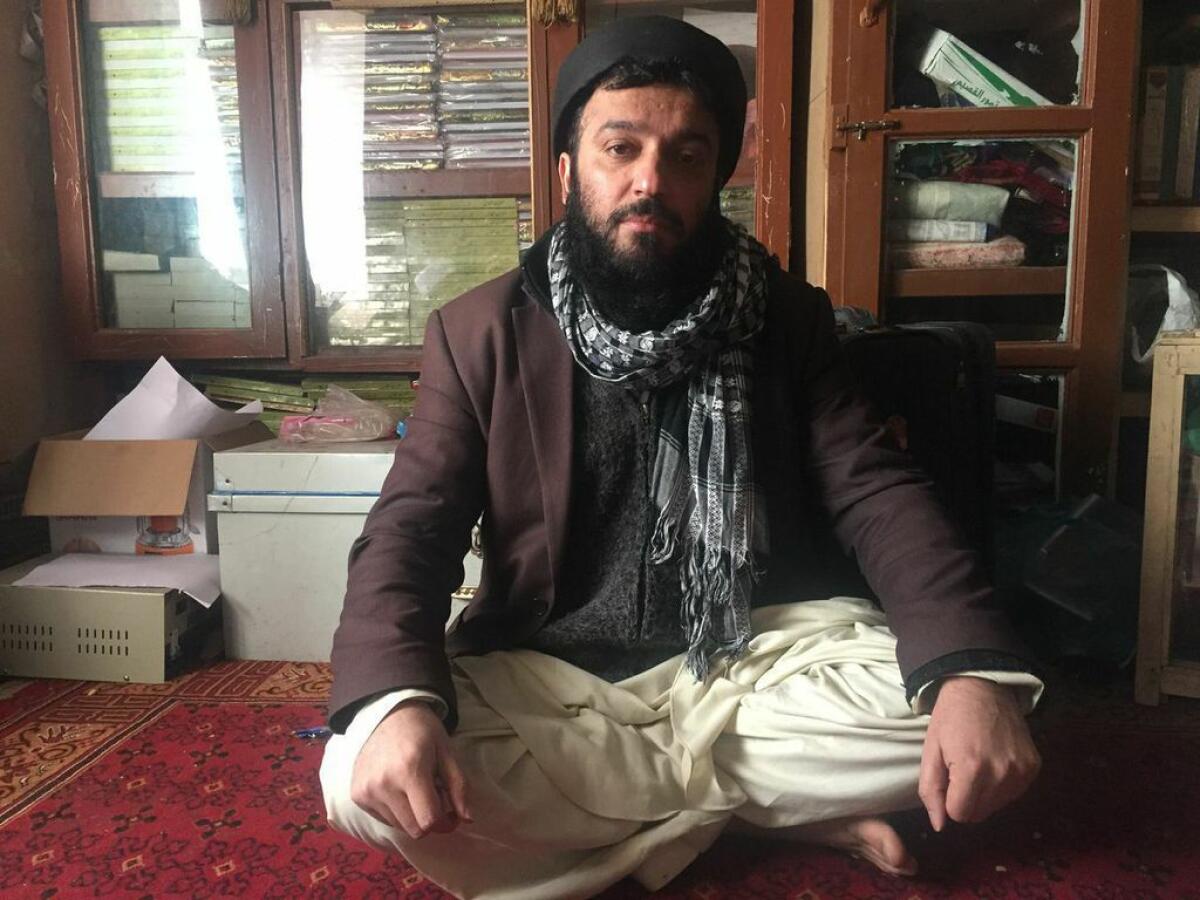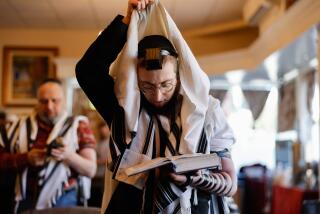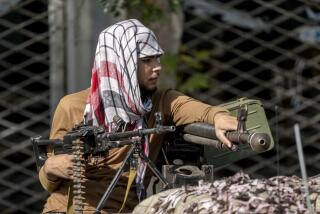Afghanistan’s ancient Sufi order shocked by deadly attack

- Share via
Reporting from Kabul, Afghanistan — Nothing could have prepared Mohammad Zarar for the lead story on Afghanistan’s 10 p.m. television news Saturday.
The Sufi Muslim meetinghouse in Kabul that the 46-year-old science teacher attended for more than a decade was attacked by gunmen. Officials said six people were killed, but members of the Sufi order said Sunday that 11 had died, including the local leader of the order and his son.
“It sent a shock through my whole system,” Zarar said.
Mosques have been attacked before in Afghanistan’s long-running conflict, but this was the first time in memory that a Sufi khanqah, or spiritual center, was the target of deadly violence. The ancient Sufi order, which has millions of followers in Afghanistan and across South Asia, is revered among mainstream Muslims for its mystical practices and nonviolent teachings.
Members of the order said the victims, and another man who was injured, were in the middle of their evening prayers when the gunmen opened fire.
No group has claimed responsibility for the killings, but Zarar said he is certain it was a coordinated attack. Police officials say they have detained five suspects, but details of the attack remain sketchy.
“Only the enemies of Islam could attack a place where people come together in the name of God,” Zarar said.
Zarar and others who spent years studying Islamic philosophy at the Bahadur Agha center were especially disturbed by reports that the firearms were equipped with silencers.
“No ordinary person has access to silencers,” Zarar said.
Afghanistan is regarded as a birthplace of Sufism, and some of the order’s most important figures originated here. Rumi, a 13th century theologian and poet, is believed to have been born in the northern city of Balkh.
When Afghanistan was ruled by the Taliban government in the late 1990s, many Sufis were driven underground or prosecuted. Some Islamic extremists regard the Sufis’ practices, which can include meditating, singing and dancing, as heretical.
In recent years, extremist groups in Libya and Pakistan have destroyed Sufi sites. But Saturday’s slayings were believed to be a first in Afghanistan.
Abdullah Habdi, a member of the Sufi order who spent the night at the hospital where the injured man was being treated, said the man “fainted when he heard the gunshots.”
“No one saw their faces or even how many gunmen there were,” Habdi said.
Like the dozens of men who came to the meetinghouse Sunday to offer their condolences, Habdi said he could not understand the intention of the shooters.
“We welcomed everybody here to honor and praise God in peace,” Habdi said. “We had no enemies.”
Habdi added that the khanqah received students from every ethnic and political group and from far-off northern parts of the country, as well as visitors from the U.S.-led NATO military coalition. When a Swedish female pilot visited once, he said, they welcomed her and offered her a veil.
“How could people who didn’t even turn away unbelievers become targets?” he asked.
Latifi is a special correspondent.
More to Read
Sign up for Essential California
The most important California stories and recommendations in your inbox every morning.
You may occasionally receive promotional content from the Los Angeles Times.












